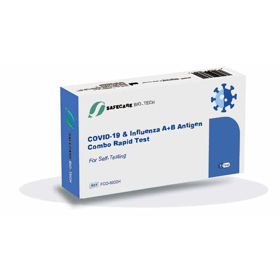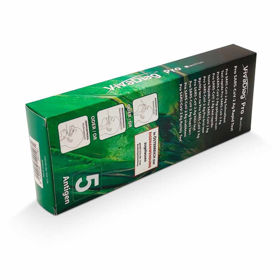Vprašanje stranke:
Kako deluje zdravilo proti Covidu? Vprašanje anonimne stranke
Odgovor farmacevta:
Zdravila proti COVID-19 so bila razvita za lajšanje simptomov bolezni, preprečevanje hujših zapletov in skrajšanje trajanja bolezni. Nekatera zdravila so na voljo za uporabo doma, druga pa so predpisana predvsem za bolnišnično zdravljenje.
- Antiviralna zdravila
Eden od najbolj znanih zdravil je remdesivir, ki se uporablja za zdravljenje hujših oblik COVID-19 in se običajno daje intravensko v bolnišnici. Vendar pa so nekatere nove protivirusne učinkovine, kot je molnupiravir, odobrene za domačo uporabo in jih bolniki lahko jemljejo v obliki tablet. Ta zdravila delujejo tako, da zavirajo razmnoževanje virusa v telesu in pomagajo skrajšati trajanje bolezni. - Imunomodulatorna zdravila
Pri hujših primerih COVID-19 se pogosto predpisujejo kortikosteroidi, kot je deksametazon, ki zmanjšajo vnetje v telesu, preprečujejo poškodbe organov zaradi prekomernega imunskega odziva in izboljšajo prognozo pri bolnikih s težjimi simptomi. Deksametazon se običajno uporablja v bolnišnici, vendar je pomembno, da ga predpiše zdravnik, saj nepravilna uporaba lahko privede do neželenih učinkov. - Monoklonska protitelesa
Za zdravljenje lažjih oblik COVID-19 pri bolnikih z večjim tveganjem (kot so starejši ljudje ali tisti z oslabljenim imunskim sistemom) se uporabljajo monoklonska protitelesa, ki pomagajo zmanjšati virusno obremenitev in preprečujejo napredovanje bolezni. Ta zdravila so običajno dostopna v obliki infuzij v ambulantnih klinikah ali bolnišnicah.
Kdaj in kako si lahko pomagate doma?
Če imate blage simptome COVID-19, kot so kašelj, bolečine v mišicah ali rahlo povišana telesna temperatura, je najpomembnejše, da ostanete doma in počivate. V tem primeru si za lajšanje simptomov lahko pomagamo s:
- paracetamolom ali ibuprofenom za znižanje temperature in ublažitev bolečin,
- toplimi napitki (kot je čaj z medom in limono) za lajšanje bolečin v grlu,
- povišano hidracijo, ki pomaga preprečiti dehidracijo, ki lahko nastane zaradi vročine.
Zdravila, kot je molnupiravir, so odobrena za zdravljenje COVID-19 doma, vendar jih je treba jemati v zgodnjih fazah bolezni in pod zdravniškim nadzorom ter predpisom. Pomembno je, da se obrnete na svojega zdravnika, če imate hujše simptome, kot so težave z dihanjem, bolečine v prsih ali zmeda, saj to lahko nakazuje na resnejšo obliko bolezni.
Čeprav zdravila lahko pomagajo pri zdravljenju simptomov, je preventivna oskrba ključna. To vključuje:
- Cepljenje: zdravniki priporočajo cepljenje proti COVID-19, saj učinkovito preprečuje resne zaplete bolezni.
- Hidracijo in počitek: ohranite svoje telo hidrirano in zagotovite dovolj počitka za podporo imunskemu sistemu.
- Zdravo prehrano: bogata naj bo z vitamini, minerali in antioksidanti, ki podpirajo zdravje imunskega sistema.
Čeprav so na voljo nekatera zdravila, je ključno, da se pred kakršnimkoli zdravljenjem posvetujete z zdravnikom.
Zanimivo branje: VAZELIN ZA OBRAZ
Zanimivo branje: OZEBLINE






 Facebook
Facebook
 Instagram
Instagram
 info@moja-lekarna.com
info@moja-lekarna.com

